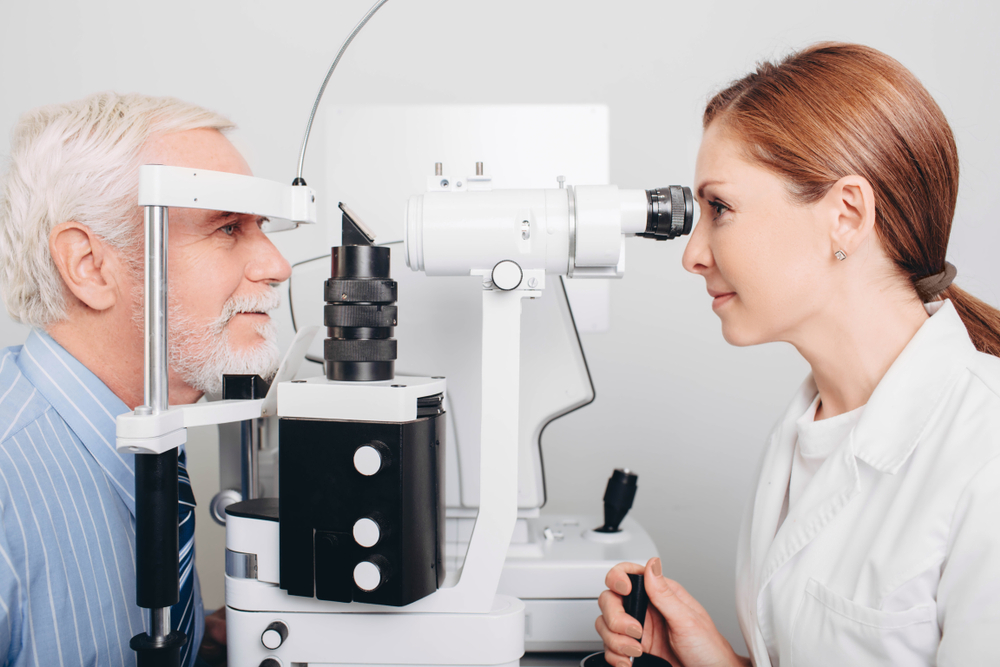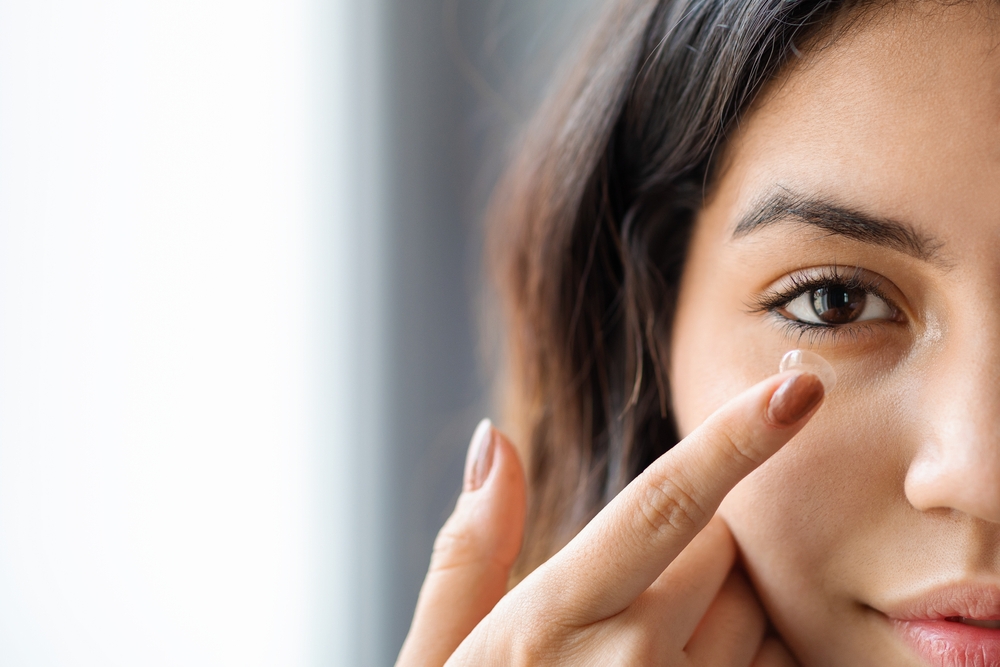Home » Blog » Here are 7 Things Your Atlanta Ophthalmologist Wishes You Knew About Your Vision
Here are 7 Things Your Atlanta Ophthalmologist Wishes You Knew About Your Vision
Posted by: Georgia Eye Partners in Patient Education

Keeping your eyes healthy is necessary to maintain good vision and keep it that way as you age. However, there are many ways to keep your eyes healthy that many people don’t know about.
Just like you need to brush your teeth, floss, and see a dentist regularly to maintain healthy teeth, there are many things you can do to keep your eyes healthy.
What do you need to know to have healthy eyes? If you want healthy eyes and great vision for years to come, you can do a few things. Keep reading to find out 8 things that your Atlanta eye doctors wish you knew about your vision!
1. You Can Have Eye Conditions Without Symptoms
It may be hard to believe, but many eye conditions don’t have any noticeable symptoms in their early stages. These eye conditions can permanently damage your eyes and vision without you noticing until it’s too late.
Many age-related eye conditions can cause vision loss and affect your ability to see. One of the most prevalent of these is glaucoma.
Glaucoma is often called the Silent Thief of Sight. It is one of the leading causes of blindness in adults 60 and older. Other common eye conditions with no early symptoms that cause irreversible vision loss are diabetic retinopathy and macular degeneration.
All these eye conditions are serious and can lead to blindness. But even though they don’t show symptoms until a patient experiences vision loss, regularly scheduled eye exams can save your vision from many of these eye conditions.
2. Regularly Scheduled Eye Exams Can Save Your Vision

Since many eye conditions, particularly age-related eye conditions, don’t show symptoms in the early stages, the only way to know if you have them before you experience vision loss is through an eye exam. These eye conditions cause damage to vital parts of the eye.
Although you may not notice the effects yourself, your eye doctor can see this damage when they look inside your eye with a dilation exam and by using specialized imaging equipment. When eye conditions like glaucoma are diagnosed early, before you experience any symptoms, treatment is much more viable.
While there’s no cure for these eye conditions, including glaucoma, managing them by treating them can significantly delay further vision loss, preserving your vision for years to come. However, regularly scheduled eye exams are the only way to ensure the most effective treatment.
Your eye doctor can assess your risk for eye conditions and recommend an eye examination schedule accordingly.
3. You Should Know Your Family’s Visual and Medical History
When assessing your risk for eye conditions, your eye doctor needs to know your medical history. For this to be most effective, you must know your medical history.
You also need to know your family medical history. That usually means knowing what eye and related medical conditions your parents, siblings, aunts, uncles, and grandparents have been diagnosed with.
Knowing what conditions you may be genetically prone to developing will help your ophthalmologist better understand your risk for eye conditions and advise you on preventative measures and eye exam frequency.
4. You Should See Your Eye Doctor if You Experience Any Visual Changes or Symptoms
You should always make an appointment to see your eye doctor when you experience vision problems. Seeing your eye doctor is the best way to diagnose eye conditions as early as possible.
Even if you have an eye condition like glaucoma and the vision loss is irreversible, getting diagnosed and treated can prevent further vision loss.
All visual changes are essential to note, but some may indicate more immediate medical concerns and should be treated as quickly as possible.
This includes seeing new floaters and flashes of light, which may indicate a retinal tear. If you experience these symptoms, you should see an eye doctor immediately.
If you see many new floaters and flashes at once, along with a shadow over your vision, you should seek emergency medical care as you may have a retinal detachment, as this is a medical emergency. You should also seek emergency care if you experience a combination of blurred vision, halos, bright lights, headache, nausea, and vomiting, as these symptoms indicate a rare type of glaucoma that needs immediate treatment to prevent severe vision loss.
5. Sun Protection Is Incredibly Important

UV exposure raises your risk for eye conditions and even eye cancer. Wearing sunglasses whenever you’re outside is a must if you want to maintain healthy vision.
Be sure only to wear sunglasses labeled as blocking out at least 99% of UV rays, as not all sunglasses are designed to do so. Also, consider wearing a broad-rimmed hat outdoors during peak UV times to provide the best protection for your eyes.
6. Better Nutrition Means Healthier Eyes
Everyone knows that good nutrition is good for your body, but you may not be aware that nutrition is also vital to keeping your eyes healthy. Various nutrients, including vitamins C, A, and E, are necessary for healthy eyes.
These nutrients can be obtained from dark, leafy greens, sweet potatoes, and beans, among other foods your eye doctor may recommend. Omega-3 fatty acids are also good for healthy tears and may reduce your chances of having dry eyes.
You can get omega-3 fatty acids from fish, chia seeds, flaxseeds, and walnuts. Nutritional supplements can help you get these various vitamins and nutrients, but getting nutrients directly from food is always more effective.
7. You Need to Be Careful With Screen Use
Blue light from screens can lead to eye strain, dry eyes, fatigue, and headaches, which are bad for your eyes and overall health.
It can be hard to limit your screen time if you’re required to work on a computer for your job, but there are ways to limit blue light exposure. Many electronic devices have a warm light mode that reduces the amount of blue light emitted.
You can also get glasses with a blue-light protective coating. But even when you’re filtering out blue light, prolonged screen use can still be harmful.
Try to take breaks from using screens. If you can’t take long breaks, following the 20-20-20 rule can still be helpful.
This rule states that for every 20 minutes of screen use, you should take a 20-second break to look at an object 20 feet away. Even a 20-second break will give your eyes time to refocus, blink, and get a quick rest.
8. Proper Contact Lens Care is Essential

If you wear contact lenses, your ophthalmologist wants you to know that proper care and hygiene are crucial for keeping your eyes healthy. Many contact lens wearers don’t realize the potential risks of improperly taking care of their contact lenses.
Doing this may lead to serious eye infections and other complications. The first step in wearing contact lenses is always washing your hands thoroughly before you touch or handle them.
This can significantly reduce the risk of introducing harmful bacteria into your eyes. When you clean your contacts, ensure you only use the solution as your eye doctor recommends.
You should also never clean or store your contact lenses using tap water or saliva, as these can contain microorganisms that could lead to an infection. You should also replace your contact lenses as scheduled.
Whether you wear daily, bi-weekly, or monthly lenses, don’t wear them longer than recommended. Using them for too long can lead to protein buildup, reducing oxygen flow to your eyes and increasing the risk of complications.
Never sleep in your contacts unless you wear extended-wear lenses. Sleeping in regular contact lenses can significantly increase your risk of developing an eye infection!
Remember, you need to take regular breaks from wearing contact lenses. You should wear glasses at least one full day per week to give your eyes time to breathe and recover from wearing contacts. Giving your eyes enough time in between wearing contact lenses can help prevent dry eyes and other issues associated with wearing contact lenses.
Finally, never ignore any discomfort or redness you may experience while wearing contact lenses. If you experience persistent irritation, pain, or vision changes, immediately remove your contacts and inform your eye doctor. Early intervention can ensure minor issues don’t become a more serious problem.
Following these guidelines, you can enjoy wearing contact lenses without worrying about keeping your eyes healthy. Remember, taking care of your contacts is essential to maintaining good vision and keeping your eyes healthy.
Your eyes are precious, and that’s why you need to make them a priority. By following these tips, including regularly scheduled eye exams, proper nutrition, sun protection, mindful screen use, and proper contact lens care, you’re taking crucial steps toward preserving your vision for years to come.
Are you ready to make your eyes a priority? Take the first step by scheduling an appointment with your eye doctor. Isn’t it time to feel confident about your vision?